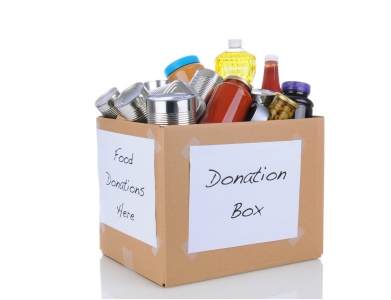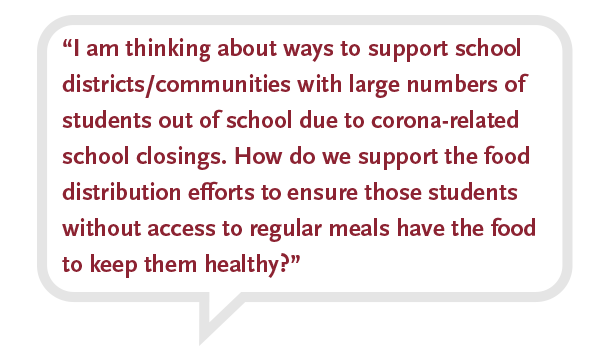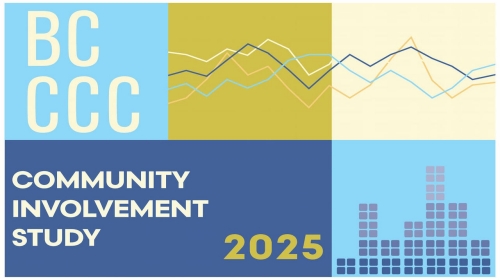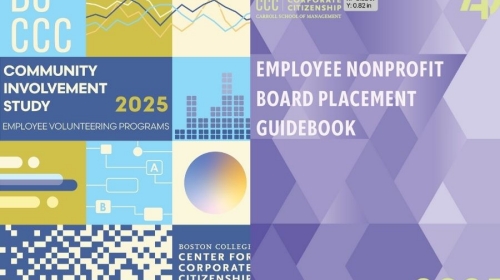WEBINAR: This webinar explores how to measure and communicate your organization's social impact with proven frameworks and strategies that matter to stakeholders.
Ready Response: How COVID-19 is impacting food security and community wellness

COVID-19 is disrupting business operations and ESG programs across the world. To support your efforts in this time of disruption, we’re rounding up relevant Center resources, news, company best practices, and research and delivering it straight to you.
Blog: Supporting food security during COVID-19
While COVID-19 continues to put pressure on our health care systems across the globe, we are all thankful that children seem to be spared from the worst symptoms of the virus. Many, however, aren’t immune from its subsequent effects—especially the threat of hunger. READ MORE
Webinar: Corporate Wellness: Promoting health in your company and community
Promoting food security is an important way to invest in your community during the COVID-19 pandemic, and could be embedded into broader wellness plans. In this webinar, you’ll learn from companies that have created robust wellness plans for both their companies and communities, so you can create more resilient programs going forward. WATCH NOW
Members in Action
Check out our ongoing list of how companies are responding to COVID-19.
The Kroger Company Zero Hunger/Zero Waste Foundation made a $3 million commitment to deploy hunger-relief resources to communities impacted by the coronavirus. This commitment will be spread between the foundation’s nonprofit partners Feeding America and No Kid Hungry, and will support local food banks as well as fund initiatives to ensure children still have access to nutritious meals when schools are closed.
The Walt Disney Company is donating food from its Disneyland parks to the Second Harvest Food Bank of Orange County while the parks are closed. The company plans to donate excess dairy, fruit, vegetables, packaged goods, and banquet meals to the food bank, which is working to end hunger in the Orange County area.
Relevant Research
While social distancing is necessary to help limit the spread of the virus, anything that deters people from accessing group meals at senior centers or food banks puts low-income seniors in danger of malnutrition and hunger. Millions of them also typically cannot afford to stock up on food or supplies, and if they can, many need transportation assistance to and from grocery stores. READ MORE
News You Can Use
With coronavirus closing schools, here's how you can help food insecure children
The coronavirus pandemic is shutting down schools and parents are scrambling to find ways to feed their hungry kids. Charitable organizations are working to fill the gap, but they need your help. Here are a few organizations you can support. CNN
Food banks are seeing volunteers disappear and supplies evaporate as coronavirus fears mount
Food and cash donations have sharply decreased, even as the logistics of feeding the hungry have become more complex. Washington Post
Join the discussion in our member community.
Related Content
RESEARCH BRIEF - Researchers investigated how ESG activities help or hurt financial performance, using nine years of data from over 1,200 global companies.
RESEARCH BRIEF - Researchers analyzed 4 US energy exchange-traded funds (ETFs) over 15 years, including 2 dirty energy funds tracking fossil fuel companies and 2 clean energy funds tracking renewable energy companies.
RESEARCH BRIEF - Researchers conducted a survey, which measured perceptions of CSR and ethical leadership within the manufacturing and service industries.
WEBINAR: This webinar explores how corporate giving will be reshaped by the One Big Beautiful Bill. Hear directly from corporate citizenship leaders as they share innovative, real-world strategies that deliver impact for communities and results for business.
This study explores shifting trends in employee volunteering, corporate giving, and other means of corporate community involvement.
This guidebook offers insights on placing employees in nonprofit board service roles.
This study explores shifting trends in employee volunteering, corporate giving, and other means of corporate community involvement.









